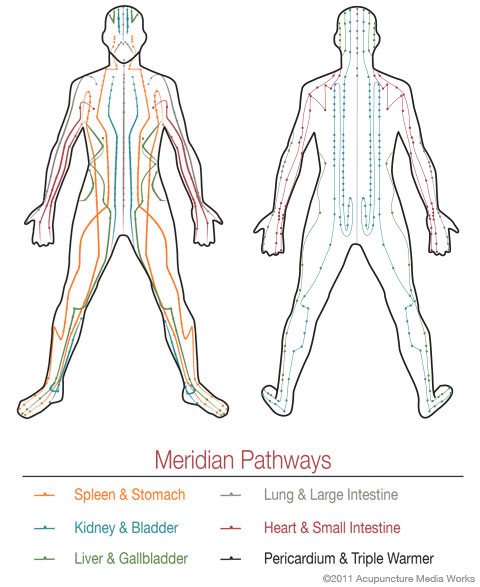
Acupuncture and Traditional Chinese Medicine (TCM) incorporate thousands of years of experience in treating depression.
Not only can they help to alleviate the signs and symptoms accompanying depression, they can address the root cause(s) and underlying imbalances that have contributed to the problem, safely and naturally.
Acupuncturists like Jenny Bisset are aware of the powerful interplay between our body and emotions, and that the two are inseparable.
When we experience emotional upset, our physiological state may become disrupted. Likewise, when we experience physical problems, our emotions can become greatly affected.
According to the data analysis of several independent studies, the effectiveness of acupuncture was comparable to antidepressants alone in improving clinical response and alleviating symptom severity of Major Depressive Disorder.
Additionally, the incidence of side adverse reactions in acupuncture treatment was significantly lower than that of antidepressants.
Imagine…Your depression symptoms can be effectively and painlessly treated without the use of drugs or anti-depressants
Over time, this disruption, or imbalance leads to what an acupuncturist calls “stagnant” or “depressed” Qi, (pronounced “chee”) or vital energy. Qi is a concept unique to the theories and principles of TCM. According to these theories, Qi is the vital energy that animates the body and protects it from illness and pain. Qi flows through the body in pathways called meridians (see diagram below).
When Qi becomes stagnant or depressed, physical and/or emotional symptoms result. Practitioners of acupuncture and TCM are specifically trained to detect and correct the balance and movement of Qi within the human body.

How Acupuncture for Depression Works
Treatments are focused on balancing and activating the Qi by manipulating corresponding points on the body.
Acupuncturist, Jenny Bisset will take a complete health history in order to find out where, why, and how Qi has become stagnant or depressed. They will develop a unique treatment plan tailored to specific symptoms and signs of each individual.
The goals of such a plan will be to activate the movement of Qi throughout the entire body, as well as to address the root cause(s) and underlying imbalances. By treating the body as a whole and unique organism, your acupuncturist will support you in your recovery from illness and disease, moving you toward health and happiness.
Using acupuncture for depression and TCM provides a safe, natural, drug-free and effective ways to address depression. The focus is to restore a balanced and continuous flow of Qi throughout the body and mind.
However, acupuncture is not a “quick fix.” You may need to receive weeks or months of treatment in order to see lasting results. Give yourself the time required so that you can experience the maximum benefits acupuncture and TCM have to offer.
“If I could give Jenny 10 stars I would. I went to see her for chronic foot pain (10+ years from a sports injury) and she came up with a treatment plan that not only addressed that issue, but another underlying issue that I’ve struggled with for years…. anxiety and mild depression. Her treatments have been life changing for me.
My mood is significantly improved, my foot pain is diminishing and I have a sense of calm about me that I have never experienced. I would highly recommend giving her a look. She is wonderful!” – Nancy B., San Carlos
 Schedule an appointment with Jenny today
Schedule an appointment with Jenny today(650) 206-8116
Acupuncture in San Carlos, CA
Jenny Bisset, Doctor of Acupuncture and Oriental Medicine
References:
1 “Depression.” World Health Organization. 7 March 2011. ‹http://www.who.int/›.
2 “The effectiveness and safety of acupuncture therapy in depressive disorders: Systematic review and meta-analysis.” Zhang-Jin Zhang, Hai-Yong Chen, Ka-chee Yip, Roger Ng, Vivian Taam Wong Journal of Affective Disorders – July 2010 (Vol. 124, Issue 1, Pages 9-21).

